The recent trip was a great opportunity to talk about current conservation challenges, progress made so far and to look forward at future opportunities where we can help make a difference.
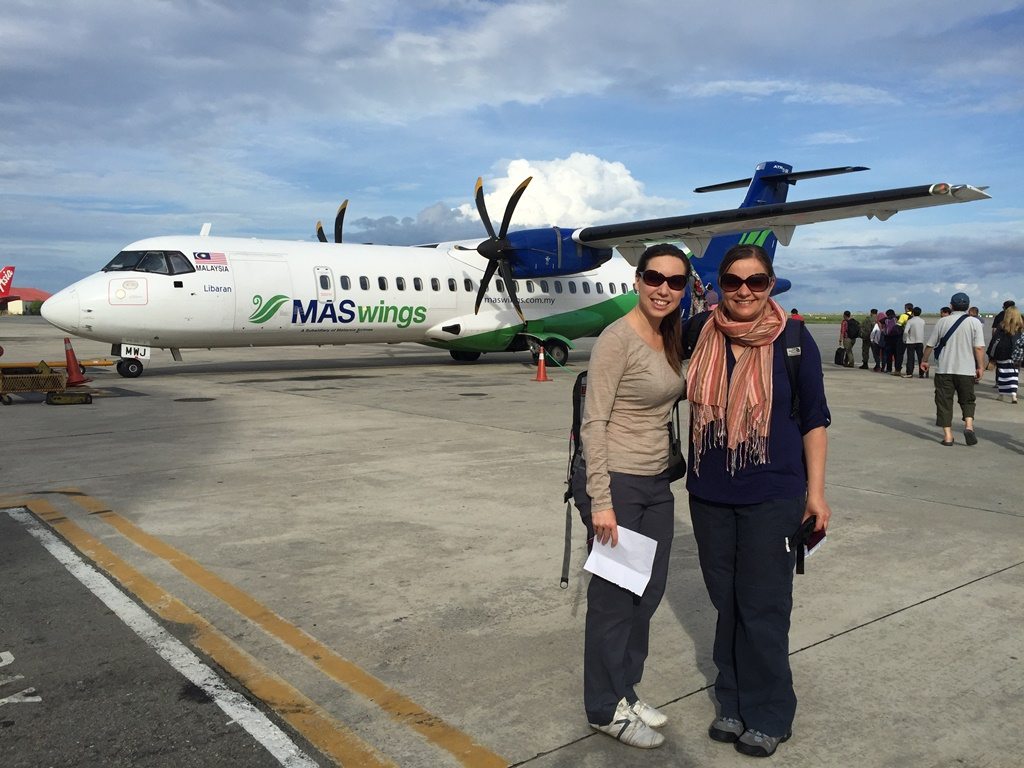
Jenny tells us more about the field trip:
Meeting the orangutan research team…
“The data gathered from monitoring the orangutans in the field is crucial for estimating population sizes and understanding more about their ecology. In recent years, orangutans have had to adapt to their ever-changing environment, as oil palm plantations and other human activities encroach upon the rainforest they depend upon. Understanding how orangutans adapt to these changes and their fundamental needs is vital information if we are to conserve and protect them.
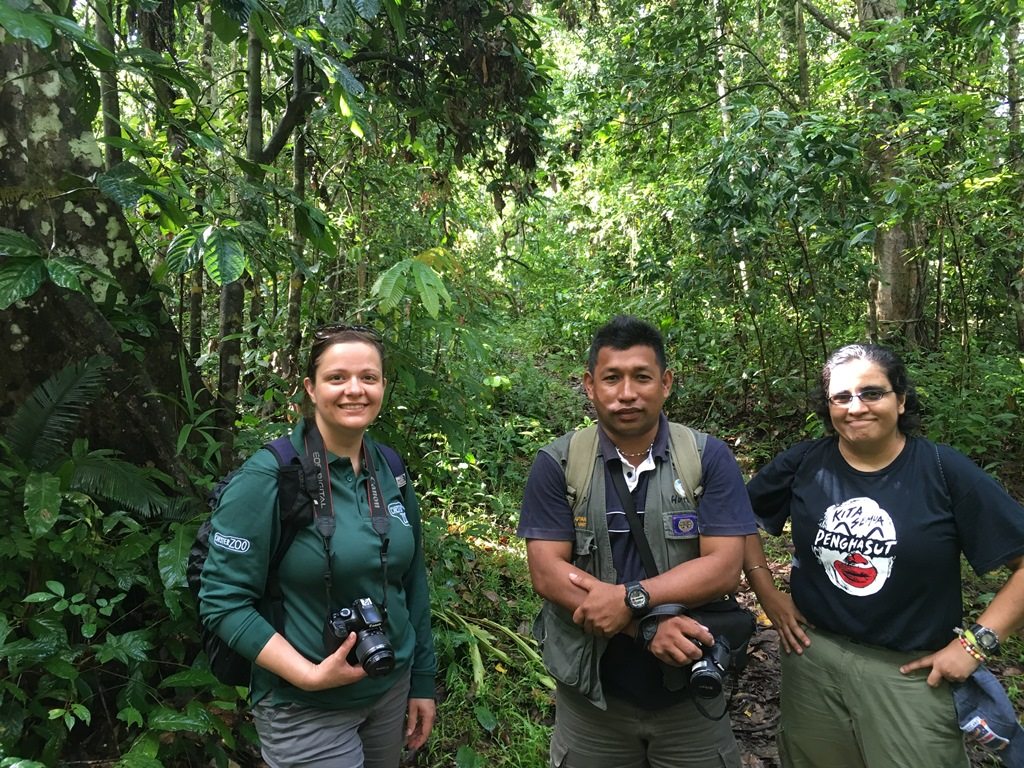
Jenny (left) with some of the HUTAN team. Photo credit: HUTAN
It was a real privilege to observe orangutans in the wild and to meet the HUTAN team dedicated to monitoring them.
“Most recently, HUTAN’s research has also resulted in the Bornean orangutan being officially classified as ‘critically endangered’ on the IUCN Red List – only one step away from ‘extinct in the wild’. We need to work together to make changes in the management of habitat to ensure that humans and orangutans can successfully co-exist.
Meeting the HUTAN warden team…
“The wardens carry out enforcement activities around the Kinabatangan, monitoring human activity in and around the forest and providing a crucial link between the conservationists and the local community.
“Wildlife surveys along the river are a large part of the wardens’ responsibilities: this includes monitoring the eight species of hornbill found in the region and their use of the artificial nest boxes we assisted the team to create in 2013.
“Azri, head of the warden team, took us to see the orangutan bridges and nest boxes that our team helped HUTAN to create. It was rewarding to also visit a reforestation site which our team visited and helped to plant five years ago. The site had been illegally planted with oil palm trees, but was reclaimed and replanted with fast growing native species. The site was monitored for three years after planting and is now well established.
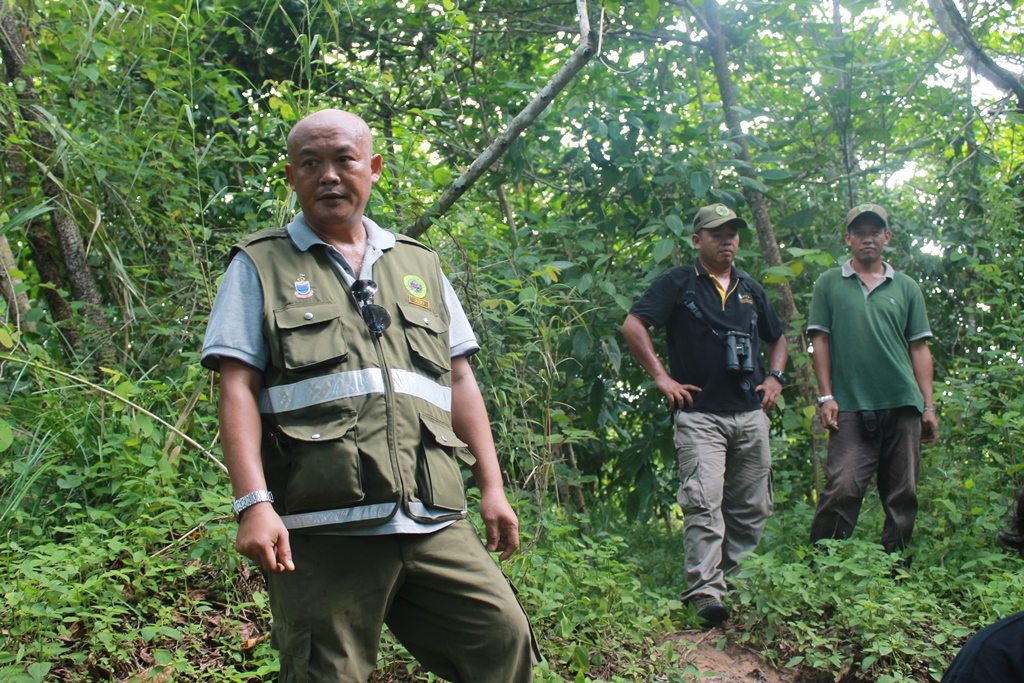
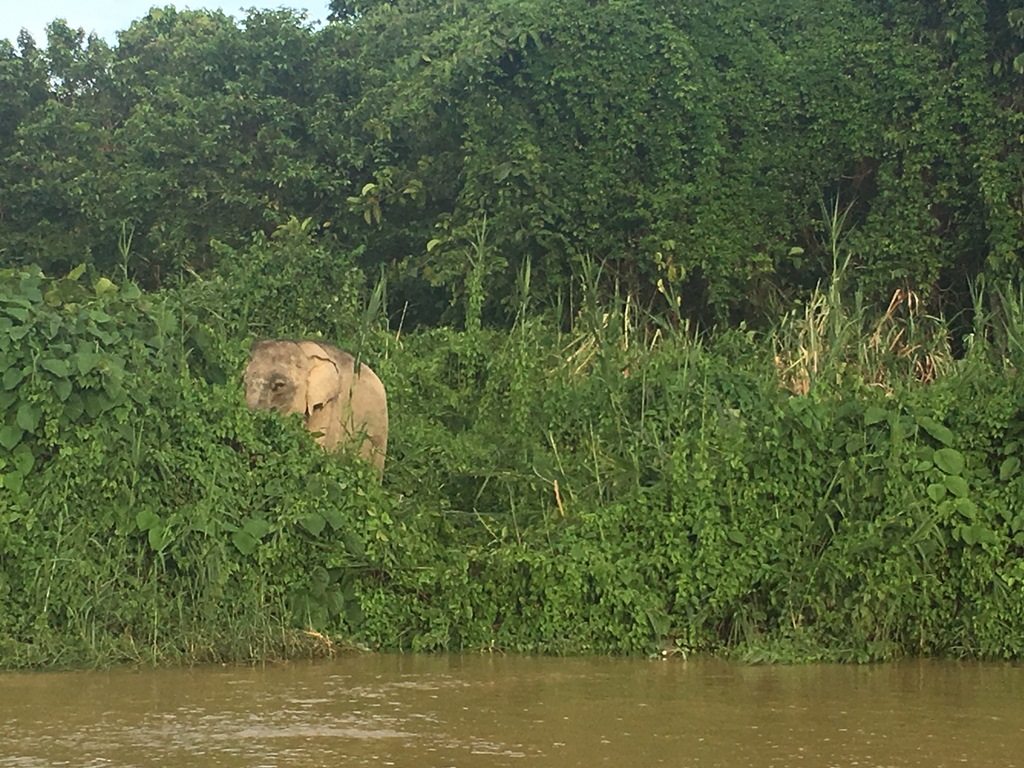
“These wild elephants walked along the river and then disappeared off into the oil palm plantation behind – a reminder that these forests are home to so many animal species and made us more determined to work to protect them.
Visiting a sustainable palm oil plantation
“As part of our Sustainable Palm Oil Challenge we have been encouraging people to buy products that have been certified by the Roundtable on Sustainable Palm Oil (RSPO) as using certified sustainable palm oil.
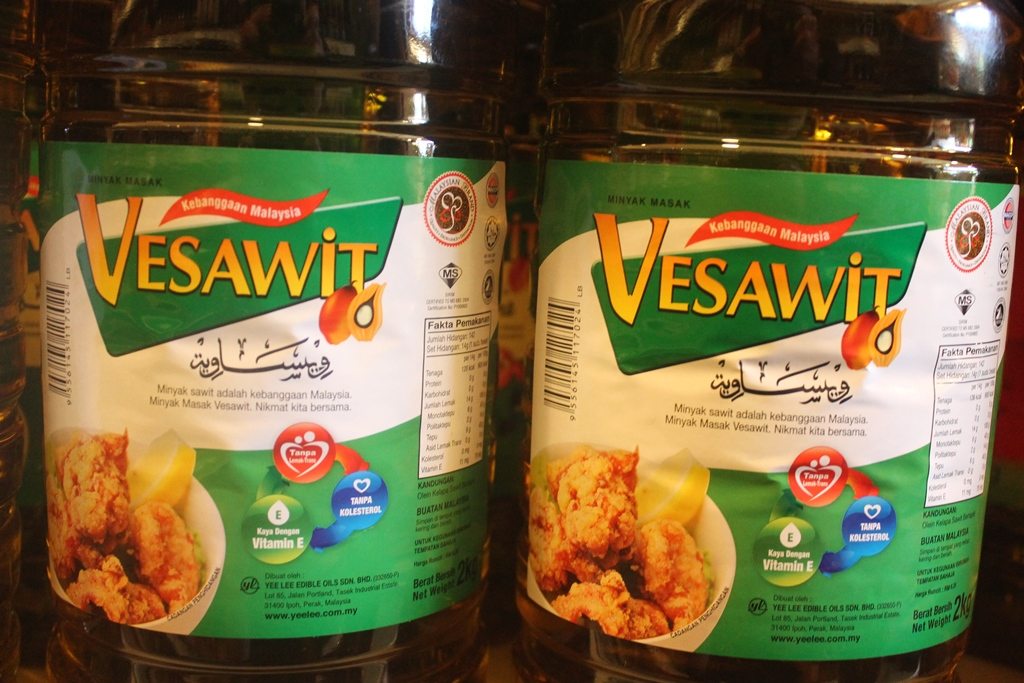
Two bottles of palm oil in a local shop.
“To gain a better understanding of what growing RSPO certified sustainable palm oil actually means, we were able to visit a certified plantation. It was encouraging to see the steps companies are taking to protect wildlife and achieve better working practices for their employees.
Working with the community
“For a number of years we’ve been working with HUTAN’s education team (HEAP), assisting with a strategy for their learning programme. Their programme centres on improving knowledge about the forests and the negative impact humans can have on wildlife.
“One of the focuses for this trip was to discuss next steps with the team and look into how some of the community and education skills we use can help the local community to get more involved in efforts to protect wildlife. We’ll be working with the HEAP team to assist their efforts over the months to come.
HUTAN is about people. We have a lot of hope for the future. Working with the community here, we can fix this
What’s next for our work in Borneo
“The recent news about the change in status of the Bornean orangutan has made the work we do in this region even more important. Ensuring that orangutans continue to exist in these human-dominated landscapes is a challenge which we’ll continue to help find solutions for through our partnership with HUTAN and our support of their work in the field. Our support for transforming the palm oil market to a sustainable supply is now even more critical.”